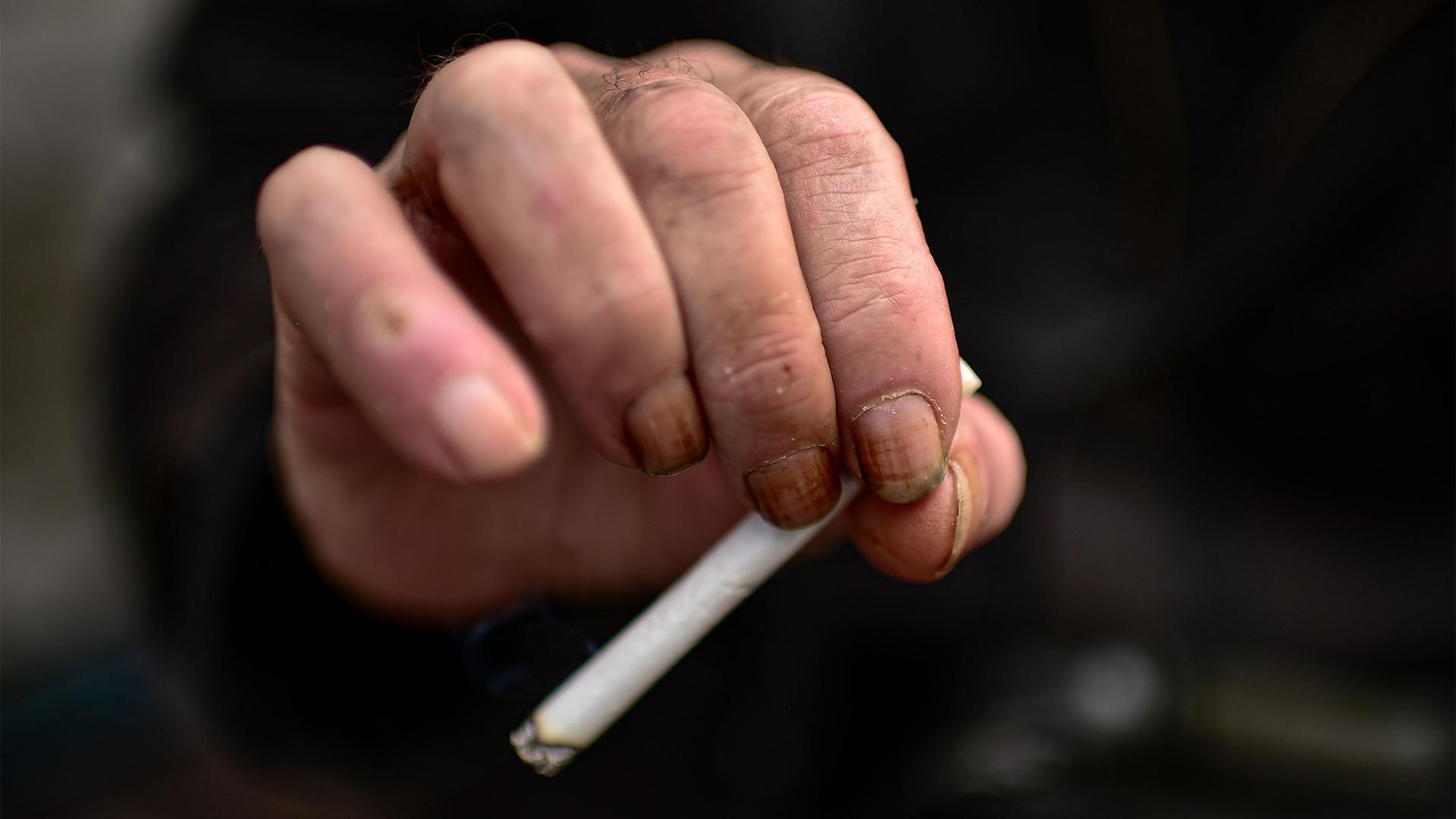Big tobacco is forced to pay for cigarette butt pollution in Spain, but smokers may soon be on the hook
More than a third of Spaniards light up on a daily basis. And when they’re done, many of their cigarette butts land in the street.
“Seven out of 10 cigarette butts in Spain get flicked to the ground,” said Rosa Garcia, the director of a nongovernmental organization called Rezero in Barcelona.
A lot of cigarette butts reach the coast when beachgoers drop them into the sand, she said, adding that more than 25% of the waste collected on Spanish beaches consists of plastic cigarette butts.
The cost each year to remove the tiny toxic nubs around Spain totals hundreds of millions of dollars, according to Garcia. A Rezero study suggests that it breaks down to anywhere between $15 to $25 per person every year.
“And even if you don’t smoke, you’re still paying for that cleanup — through your taxes,” Garcia said.
A recent decision, however, changed all of that. Spanish lawmakers have said that enough is enough — they passed legislation this month that would require cigarette makers to pay for the cleanup, but smokers worry that they’ll end up footing the bill.
Cigarette makers declined to speak to The World about their plans. But the most likely scenario is that they will reimburse individual town halls for the costs they already incur in street-cleaning. And smokers are worried that the companies might turn around and hike prices to compensate for the losses.
Barcelona has issued fines, at least on beaches, charging about $33 for dropping a cigarette butt in the surf. And last year, the city even banned smoking there altogether.
The fine was minimal, but another city initiative could hit smokers harder.
Barcelona’s City Hall is proposing a 20-cent tax per cigarette butt — which would be another $4 per pack, essentially doubling the price — but consumers would get that money back if they turn in the butts. It’s a similar scheme to getting some money back for returning soda cans for recycling.
The logistics for carrying out such a plan are still unclear.
Questions remain as to where people would return the cigarette butts. One logical choice would be at one of Spain’s 16,000 state-licensed tobacco shops, called estancos. But one estanco operator, Dani Perez, said he wouldn’t even touch them.
“In terms of hygiene it’s disgusting,” he said. “I am not going to start counting cigarette butts that have been lying on the ground, or sucked on by others.”
Nor would he have the time to do it, he said.
Cigarette butts are also filled with toxic residue from the tobacco, making them virtually impossible to recycle.
“A single cigarette butt can contaminate up to 1,000 liters [264 gallons] of water,” Garcia of Rezero said. “They are chemical bombs.”
Some startups are experimenting with biodegradable cigarette butts. But as they decompose, they’d still be releasing the dozens of toxic chemicals injected into them.
As far as cleanup goes, tobacco companies have a couple of months to roll out their plans.
Barcelona resident Andrés Conde, a 56-year-old who smokes, wonders just how companies like Winston, Camel and others will actually tackle the problem.
“What are they going to do, send brigades of tobacco employees moving down the streets of every single Spanish town?” he raised.
If they do end up passing the cost along to consumers, Conde said he knows what he’ll do.
“I won’t pay double for cigarettes,” he said. “That’s nuts. I’m going to emigrate to Latvia.” Conde normally spends his summers there — where, he said, no one would dare to even toss a cigarette butt to the curb.
And anti-smoking activists say there’s really only one longterm, viable plan: it’s not finding a way to deal with dropped cigarette butts, but getting people to quit smoking altogether.
Related: French nonprofit warns ‘COVID waste’ could harm the environment
